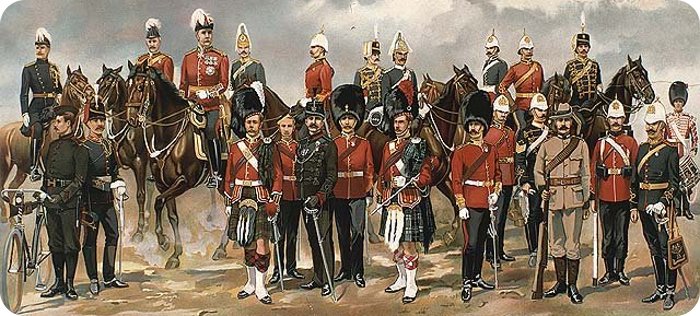Topic: Canadian Militia

The Militia Appropriation (1887)
Dominion Parliament
The St. Andrew’s Bay Pilot, St. Andrews, New Brunswick, 16 June 1887
The House went into Committee of Supply.
We should endeavor in every was possible to infuse a military spirit into the people.
On the item militia, $1,286,000.
Mr. Denison drew attention to several recommendations in the Major-General’s report with which he could not agree. The report recommended that all officers of permanent corps should be senior in rank to other militia officers. He objected strongly to the idea. It was a slavish following of the English system, while the condition of the two forces was entirely dissimilar. In England there were volunteers, the militia and the regular army. Here we had only the militia. In England it was not intended and for two or three hundred years the practice had not been followed, that militia or volunteers should be used in foreign service, although it was not the standing army that laid the foundation of England’s greatness in the battles of Cressy, Poictiers and Agincourt. Yet in all modern wars in which England was engaged the standing army alone was sent to do the fighting. In England, therefore, the officers of the permanent force had the benefit of experience, which was denied to the officers of the militia and volunteers, and that might justify the regulations there, but here it was entirely different. The moment there was any trouble here, calling for military aid, The Canadian militia turned out and served alongside of the permanent corps wherever they might be required. The militia officers of Canada made great sacrifices for the force. They spent their time and their means and did everything they could to further its interests. On the other hand the permanent officers had good pay and were well looked after, and there was no reason why they should have any preference. Again, the Major-General advocated the enlargement of the regular force and a corresponding decrease in the militia as a step necessary to maintain a proper system of defence. He (Mr. Denison) thought that exactly the opposite course should be pursued. The schools should be cut down to the smallest possible limit consistent with supplying the necessary instruction. Of what earthly use would be a standing army of one or two thousand men in the event of trouble with our neighbors to the south? Of no use at all. On the other hand, if we had a militia force of one hundred thousand men, it could, by increasing the service roll of every company from 42 to 125, be enlarged to three hundred thousand, a force which would be of great service to us in an emergency. In Europe the idea was to go in for armed nations, and in his judgement that was the proper course for us to follow. We should endeavor in every was possible to infuse a military spirit into the people. The military force should at once be increased to 50,000, and should be drilled for at least sixteen days in each year. The idea ought to be scouted of going backwards by reducing our strength. He did not think it was to the interests of a young country like Canada to have a large standing army. We could not afford to have any drones in the hive. But by a moderate amount of drilling we could have a large force which would be available and useful at short notice. It was understood at Confederation that one million dollars would be spent annually on the militia, and he did not think it was fair that when reductions anywhere were found necessary this appropriation should suffer. He hoped the Minister would not be guided by the report of the Major-General, and thet he would not permit injustice to be done to the Canadian militia by giving regular officers special rank over them.
Mr. O’Brien said he quite agreed with the last speaker in his criticism of the evident intention on the part of some in authority to place the permanent corps in a position different from that of the militia. He strongly objected to anything being done which would make the permanent force anything more than that which it was intended from the first to be, a school of instruction.
Sir Adolphe Caron said he agreed with Mr. Denison that a standing army would be altogether out of place in this country. The permanent corps was intended merely for instructional purposes, and its usefulness had been shown in the number of trained men who were turned out every year to render valuable services to the country. He did not place the same interpretation on the report of the Major-General as Mr. Denison had done. The General did not wish to replace our militia system by a permanent army, and he was sure that such views would not be entertained by Parliament.
The item passed.

